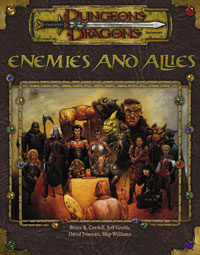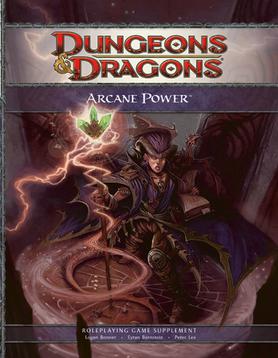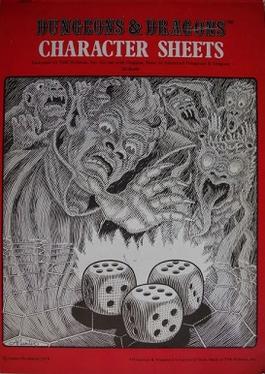
Spelljammer is a campaign setting originally published for the Advanced Dungeons & Dragons role-playing game, which features a fantastic outer space environment. Subsequent editions have included Spelljammer content; a Dungeons & Dragons 5th edition setting update was released on August 16, 2022.

A campaign setting is a setting for a tabletop role-playing game or wargame campaign. Most campaign settings are fictional worlds; however, some are historical or contemporary real-world locations. A campaign is a series of individual adventures, and a campaign setting is the world in which such adventures and campaigns take place. A campaign setting is typically designed for a specific game or a specific genre of game, though some come from existing media. There are numerous campaign settings available for purchase both in print and online. In addition, many game masters create their own, which are often called "homebrew" settings.

An adventure is a playable scenario in a tabletop role-playing game. These can be constructed by gamemasters for their players, and are also released by game publishers as pre-made adventure modules. Different types of designs exist, including linear adventures, where players move between scenes in a predetermined order; non-linear adventures, where scenes can go in multiple directions; and solo adventures, which are played alone, without a game group.
Sword and Sorcery Studios (S&SS) was an imprint of White Wolf, Inc., used to publish its d20 System & Open Gaming License material in from 2000 to 2008. The imprint also acted as publisher for other small press game developers, such as Monte Cook's company, Malhavoc Press, and Necromancer Games.
Ralph Williams, almost always referred to as Skip Williams, is an American game designer. He is married to Penny Williams, who is also involved with the games industry. He was the co-creator of Dungeons & Dragons 3rd Edition and the longtime author of the "Sage Advice" column for Dragon Magazine.

Savage Species is a sourcebook for use as a supplement in the 3rd edition of the Dungeons & Dragons game, detailing the use of monstrous races as PC races.
The warlock is a character class in the Dungeons & Dragons fantasy role-playing game. It was introduced as a non-core base class who practice arcane magic in the supplemental book Complete Arcane for the 3.5 edition of Dungeons & Dragons. In 4th and 5th edition, the warlock is a core class.
The Megaversal system, sometimes known as the Palladium system, is a role-playing game system used in most of the role-playing games published by Palladium Books. It uses dice for roll-under percentile skill checks, roll-high combat checks and saving throws, and determination of damage sustained in melee encounters by which a character's hit points, Structural Damage Capacity (S.D.C.), or Mega-Damage Capacity (M.D.C.) is reduced accordingly.

Ken Rolston is an American computer game and role-playing game designer best known for his work with West End Games and on the computer game series The Elder Scrolls. In February 2007, he elected to join the staff of computer games company Big Huge Games to create a new role-playing game.

Starfaring was the first science fiction role-playing game (RPG) published, released by Flying Buffalo in August 1976. Although it was the first to market, it didn't attract an audience, and was soon superseded by the much more popular Traveller published the following year.

Expedition to Castle Ravenloft is a module for the Dungeons & Dragons (D&D) role-playing game, released in October 2006 by Wizards of the Coast.

The Miniatures Handbook is an official supplement for the 3.5 edition of the Dungeons & Dragons roleplaying game.

Michael Mearls is an American writer and designer of fantasy role-playing games (RPGs) and related fiction.

Greyhawk is a supplementary rulebook written by Gary Gygax and Robert J. Kuntz for the original edition of the Dungeons & Dragons (D&D) fantasy role-playing game. It has been called "the first and most important supplement" to the original D&D rules. Although the name of the book was taken from the home campaign supervised by Gygax and Kuntz based on Gygax's imagined Castle Greyhawk and the lands surrounding it, Greyhawk did not give any details of the castle or the campaign world; instead, it explained the rules that Gygax and Kuntz used in their home campaign, and introduced a number of character classes, spells, concepts and monsters used in all subsequent editions of D&D.

The Dungeons & Dragons Rules Cyclopedia is a 1991 book published by TSR, Inc., as a continuation of the basic edition of the Dungeons & Dragons fantasy role-playing game, which ran concurrently with Advanced Dungeons & Dragons. Its product designation was TSR 1071.

Enemies and Allies is an accessory for the 3rd edition of the Dungeons & Dragons fantasy role-playing game.

Arcane Power is a supplement for the 4th edition of the Dungeons & Dragons fantasy role-playing game.

Lawrence Schick is a game designer and writer associated with role-playing games.

Character Sheets is a supplement for fantasy role-playing games published by Games Workshop in 1978.

Death in Freeport is a 2000 role-playing game adventure published by Green Ronin Publishing.
















